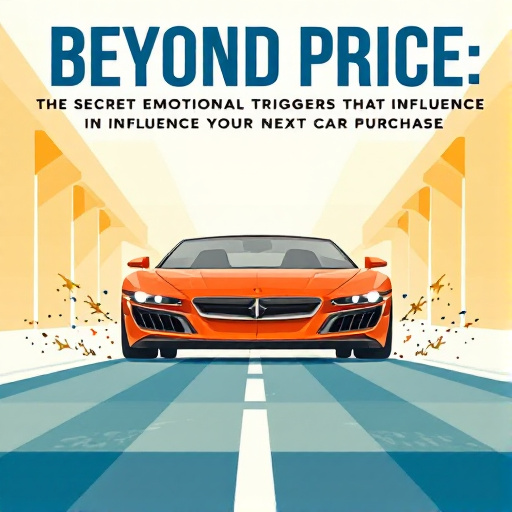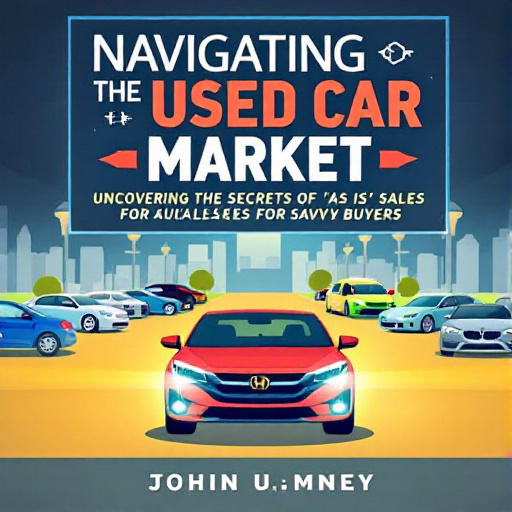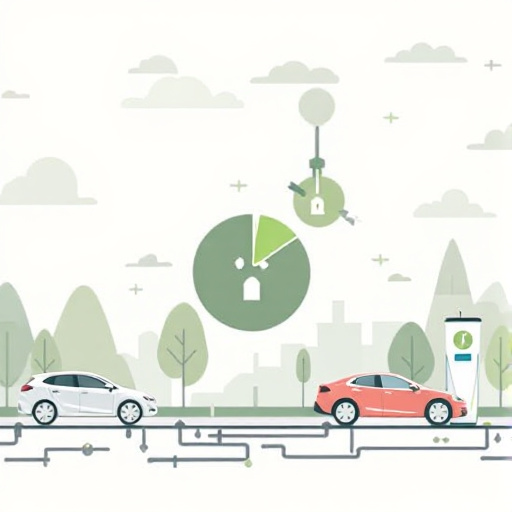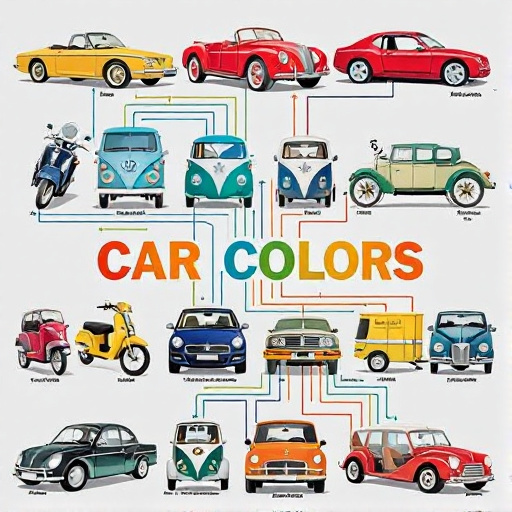Related Articles
- Charged Up! How Electric Vehicles are Reshaping Urban Wildlife Habitats and Biodiversity
- Navigating the Used Car Market: Uncovering the Secrets of 'As-Is' Sales for Savvy Buyers
- The Rise of Electric Car Pop-up Shops: A New Frontier for Urban Retail Experiences
- The Forgotten Art of DIY Car Maintenance: Rediscovering Skills in a Tech-Driven World
- Electric vs. Vintage: The Battle for Enthusiasts' Hearts in the Age of Latest Car Models
- The Rise of the 'Car Review Influencer': How Social Media is Shaping Auto Buying Decisions
"Beyond Price: The Secret Emotional Triggers That Influence Your Next Car Purchase"
"Beyond Price: The Secret Emotional Triggers That Influence Your Next Car Purchase"
When it comes to buying a car, most people focus heavily on the price, but there’s a deeper emotional landscape that significantly influences our purchasing decisions. From nostalgia to status, understanding these emotional triggers can not only enhance your buying experience but also empower your decision-making process.
The Emotional Connection
Consider for a moment the last time you purchased a vehicle. Was it a rational decision, or did you feel a wavering tug at your heartstrings? According to a study by CEB, the emotional connection a consumer has with a brand can account for more than 50% of their purchasing decision (CEB, 2016). In this context, your “perfect car” might evoke memories of family road trips or symbolize independence and success.
The Power of Nostalgia
Let’s dive into nostalgia—an emotion that can sway even the strictest budgets. Imagine walking into a car dealership and seeing a brand that your parents drove in the ‘80s. Suddenly, you’re transported back to carefree summer vacations riding shotgun. This emotional connection can override practical considerations, nudging you toward that classic style instead of a newer, more efficient model.
A Harvard study found that recalling positive memories can enhance decision-making skills, which plays a crucial role in why consumers sometimes opt for a less rational choice (Harvard Business Review, 2012).
Case Study: Volkswagen Beetle
The Volkswagen Beetle is a prime example of nostalgia’s impact. Since its reintroduction, many buyers gravitate toward the charming design reminiscent of the '60s and '70s. The marketing campaigns often highlight its heritage, prompting buyers to reminisce about the free-spirited vibe of the era. When a car embodies memories, it offers more than transportation; it serves as a vessel of emotion.
Keeping Up with the Joneses
Now let’s tackle social status. The age-old phrase "keeping up with the Joneses" isn’t just a whimsical saying; it’s a psychological trigger that plays a pivotal role in car purchases. Status symbols, like luxury brands such as Mercedes-Benz or BMW, ignite not only a desire for excellence but can also fill a deeper need for acceptance.
According to a survey conducted by AutoTrader, 37% of car buyers stated they felt a pressure to have a vehicle that matched or exceeded their friends' and family's cars (AutoTrader, 2021).
Example: Tesla and Tech Culture
Consider the rise of Tesla in the automotive market. More than just an electric car, owning a Tesla represents an alignment with a progressive lifestyle and eco-consciousness. If you drive a Tesla, you’re not just buying a car; you’re also buying a piece of technology and a social statement. It’s a prime example of how status and technology intertwine to evoke an emotional response.
Visual Aesthetics and the Psychological Pull
Even the aesthetic appeal of a car can trigger emotions that sway your purchase. The design of a vehicle might remind you of a beloved character from a movie or the sleek, futuristic feel might invigorate a sense of adventure.
According to a survey by Consumer Reports, 45% of buyers said they would pay more for a car with desirable aesthetic qualities (Consumer Reports, 2020).
Humor and First Impressions
Have you ever noticed that some cars just seem to have personality? The quirky appeal of a Fiat or the rugged bravado of a Jeep can stimulate joy even before you sit behind the wheel. Using humor in advertising, like the iconic "Dude, It's a Toyota" campaign from the 2000s, reinforces a lighthearted first impression that encourages the purchase. A little laugh can go a long way, and humor can often make a vehicle more relatable and desirable.
The Fear of Missing Out (FOMO)
Also, let’s not forget FOMO. In the age of social media, where everyone showcases their latest acquisitions, the pressure to possess what’s trending becomes palpable. According to a study from Psychology Today, the fear of missing out can compel buyers to make impulsive decisions, especially when it comes to social status vehicles (Psychology Today, 2019).
Practicality vs. Emotion: The Tug-of-War
Skeptics often argue that practical needs should overshadow emotional triggers. The reality is that practicality and emotion can coexist in a complex ballet. Take the Toyota Camry: While it’s known for its reliability and fuel efficiency, many buyers appreciate the brand's reputation and responsiveness to customer service. While a buyer may initially be drawn to a car for its reviews and safety ratings, the emotional connection often subtly influences the final decision.
Incorporating Family Needs
As you near the end of your car-buying journey, considerations about family often shape your emotions. As families grow, so does the need for a spacious and reliable vehicle. Consider the minivan: often met with sighs and rolled eyes, yet it embraces not just practicality but also the promise of cherished family moments spent traveling together.
A recent study indicated that 60% of families rated safety and space as critical factors but also identified a “sense of belonging” to a brand as a contributing purchase driver (Pew Research Center, 2022).
The Journey Ahead: The Test Drive
No matter how much homework you’ve done online or how many posts you've seen on Instagram, nothing beats the euphoric rush of a test drive. It’s where the emotional and practical collide beautifully. You can imagine daily commutes, weekend getaways, and even the sentimental moments that lie ahead.
Some people experience an emotional attachment during this phase as they picture their future selves behind the wheel. This psychological engagement is pivotal and stems back to our primal instinct—our brains are hardwired to feel emotions before making decisions.
Conclusion: Embrace the Full Spectrum
In conclusion, the journey of car buying is a multidimensional experience. While price remains a crucial factor, the emotional triggers that guide your choices often outweigh it. By understanding the role of nostalgia, social status, aesthetics, and family needs, you're better equipped to navigate the emotionally charged terrain of car purchasing. Whether you’re 16 or 70, acknowledging these emotional sources can transform your buying experience from mere transaction to a meaningful journey.
So, the next time you’re feeling torn between two models, remember: emotions hold significant power. Trust your instincts, embrace your feelings, and let them lead you to the vehicle that truly speaks to you.




